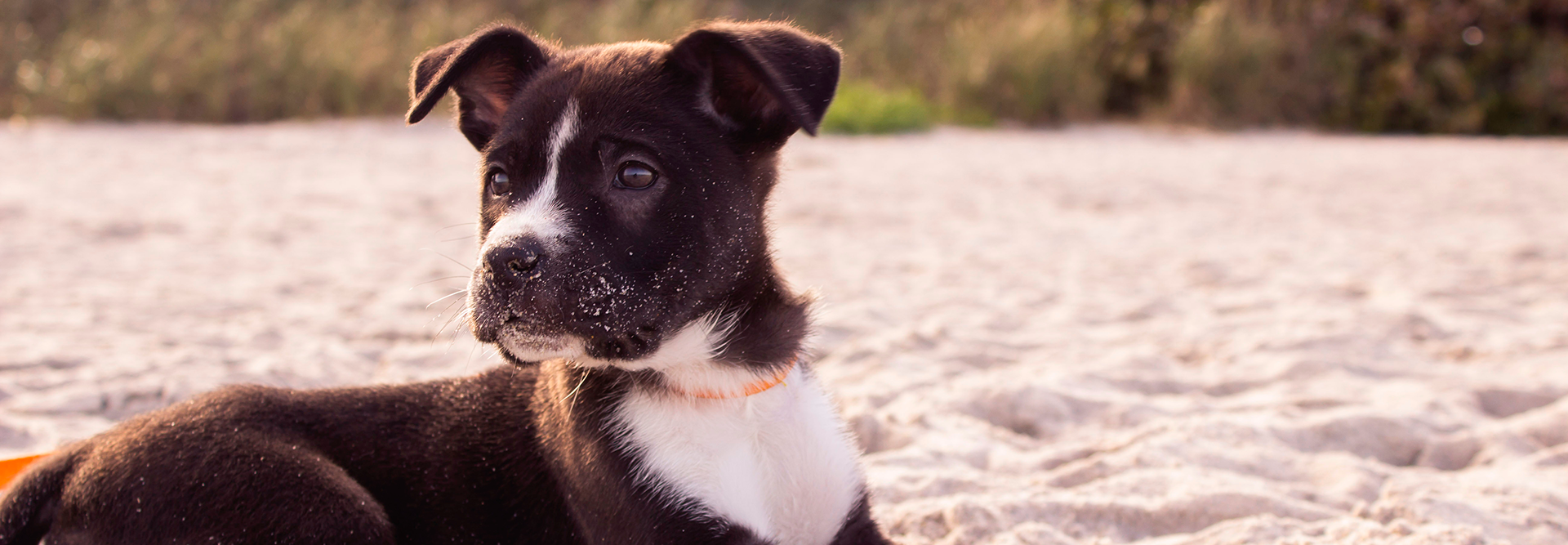
Congratulations on bringing a new puppy into your life! We cannot emphasize the changes your home and life will go through in the next couple of weeks. Despite their small, spunky size, your new puppy will come with happy messes, accidents, and cuddle sessions! It’s pretty overwhelming the first few weeks with your new fur-baby […]
Congratulations on bringing a new puppy into your life! We cannot emphasize the changes your home and life will go through in the next couple of weeks.
Despite their small, spunky size, your new puppy will come with happy messes, accidents, and cuddle sessions! It’s pretty overwhelming the first few weeks with your new fur-baby as they continue to grow used to their new home and family.
In some cases, you’ll have a question when your vet isn’t available for calls. What food do you feed your new puppy? How do you stop your puppy’s biting habit? When is the best time to take your feisty furry friend to the vet for vaccinations?
No matter how complicated your questions are, you’re not alone! Many other puppy parents have turned to the almighty Google for similar questions about their four-legged friends.
Luckily, we’re here to answer some common questions you may have about your puppy.
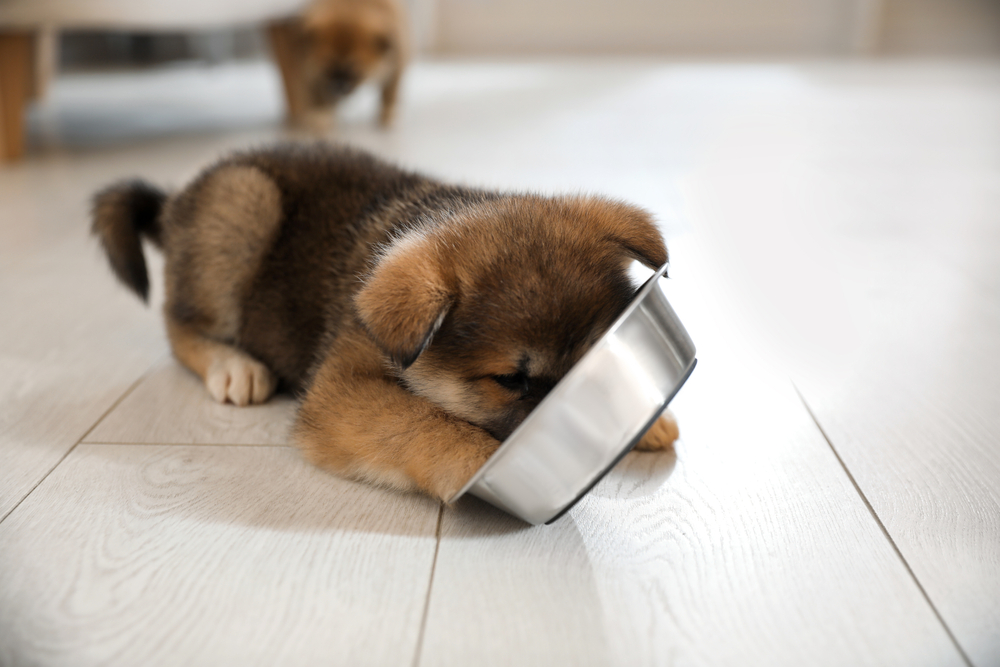
When your puppy is finally at home with you, it’s important to make sure you have the right type of food to give them. Remember that puppies are constantly growing and must be fed quality puppy food that meets their nutritional and caloric needs.
We recommend talking to your veterinarian or one of our Pet Counselors at Petland for the best advice on what types of puppy food are good for your furbaby.
Puppy food brands with a good amount of protein, calcium, and calories are typically the best for your puppy’s health and development. You can check each brand’s packaging to see what food, nutrients, and other benefits they offer for your puppy.
The amount of food to feed your puppy varies on numerous factors, like age, size, breed, and more. There are also various types of foods you can feed your puppy instead of dog food. These foods include:
Make sure these foods do not contain preservatives, artificial ingredients, or other additives that can be harmful to dogs. For example, some brands of peanut butter have xylitol, a sugar additive that can make your puppy sick.
Check out our blog to learn more tips about your puppy’s food, Choosing the Right Food for Your Puppy.
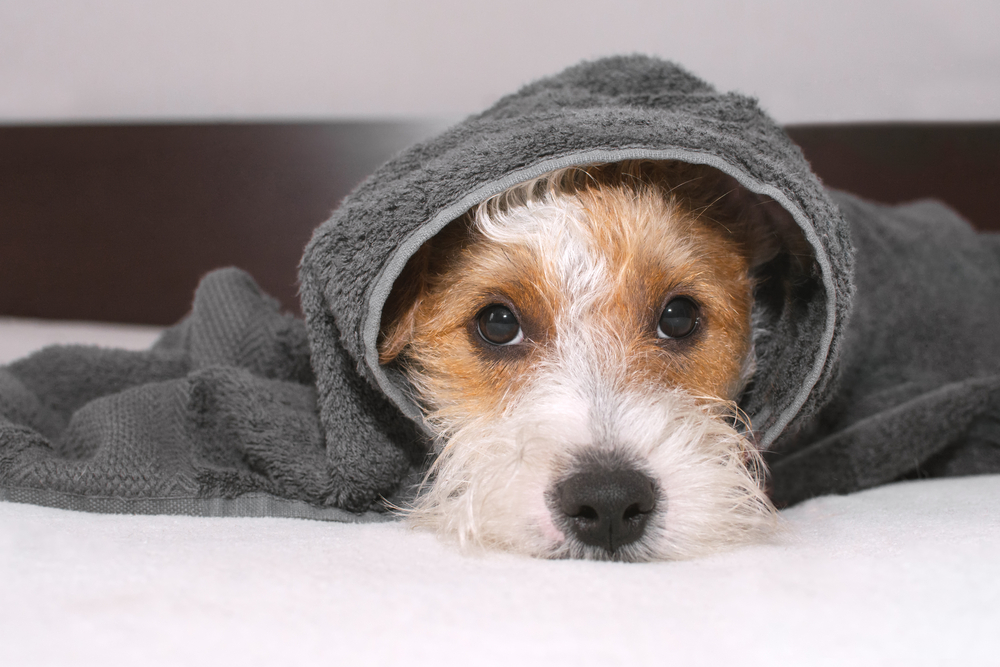
Hearing your new puppy crying at night can be very distressing for many puppy parents. The answer is simple: puppies don’t like to be alone for any reason. When you leave them alone in their crates, pens, or kennels at night, they may start crying for your attention.
Think about it. Your new puppy is like a human baby. They’ll cry when they’re hungry, feel bored, and are scared of someone (or something). Being alone in their crate surrounded by an unfamiliar setting is enough to frighten anyone—your puppy is no different!
So how do you make your puppy stop crying at night? Try checking the amount of space their crate has, putting the room at a comfortable temperature, and taking them on a bathroom break before bedtime. You should also continue crate training your puppy to get them used to sleeping inside one.
Some puppies cry in their crate at night because they need more time to see their new comfy spot as a place for resting. With enough crate training and patience, your little buddy will learn to see your home as their favorite place in the world.
You can also try our 5 Ways to Bond with Your New Puppy to further build that human-animal bond. Eventually, your puppy will grow used to its new home and stop crying at night.
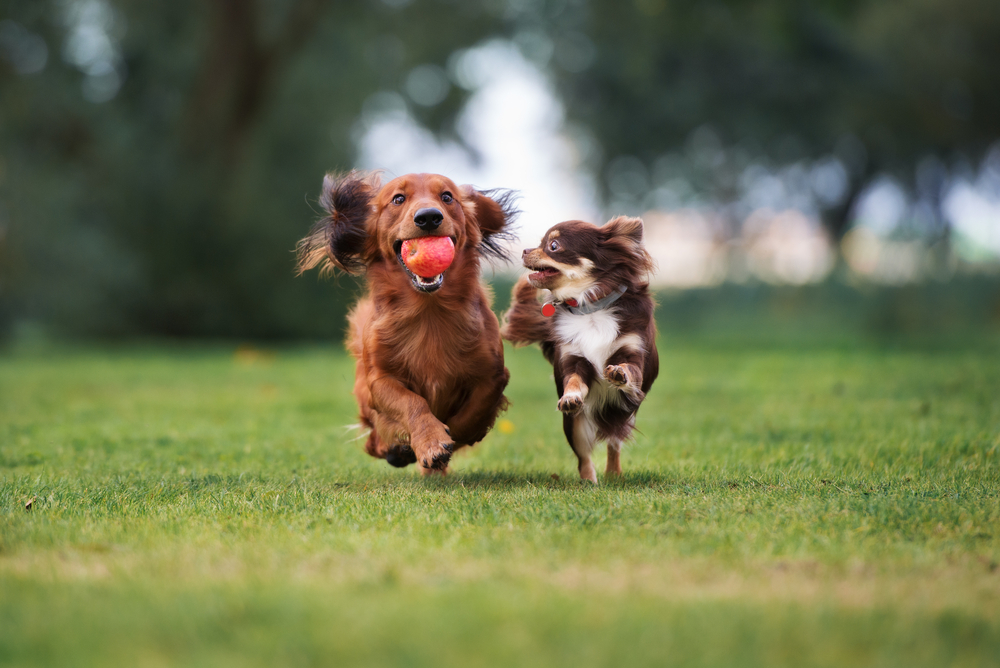
Socialization is key to a puppy’s development. Taking your puppy to the dog park is a great way to introduce them to new people, sights, and sounds. However, make sure your puppy is at the appropriate age, health, and comfort to go to the park, especially if you’re planning to let them off the leash.
Before going to the puppy park, make sure your furry friend has had all their vaccinations in place so that they won’t catch diseases. If your puppy has recently had their shots, we recommend waiting at least one or two weeks to give the vaccinations some time to work through your puppy’s immune system.
Your puppy should be at least 16 weeks old before you take them to any new place. We suggest training your puppy to follow basic commands, such as “sit” and “come” to avoid any unwanted behaviors with other people or dogs.
You can learn more about taking your puppy to the park by checking out our blog, Introducing Your Puppy to the Park.
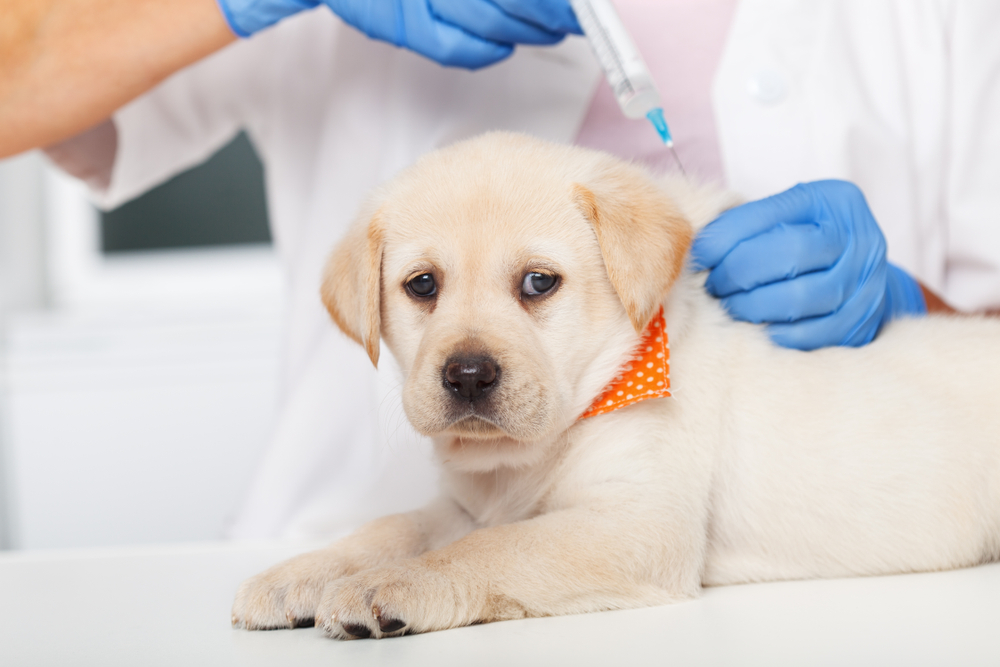
In their first year of life, your puppy will need to visit the vet regularly to receive their booster shots and immunizations. Most vets will develop a detailed puppy vaccine schedule to protect puppies from all diseases. Puppies should receive their first set of vaccinations at around 6-8 weeks of age.
They must also be completely weaned in order for the vaccinations to be effective. Make sure to visit your vet to discuss the immunizations that are best for your puppy, especially since it depends on multiple factors.
Your puppy should receive most of its shots every two to four weeks until they are at least 14 weeks old. All puppies should also get vaccinations against diseases like canine distemper, rabies, hepatitis, and parvovirus. On average, puppy vaccination costs range between $75-$100, though this varies depending on the vet clinic or animal hospital.
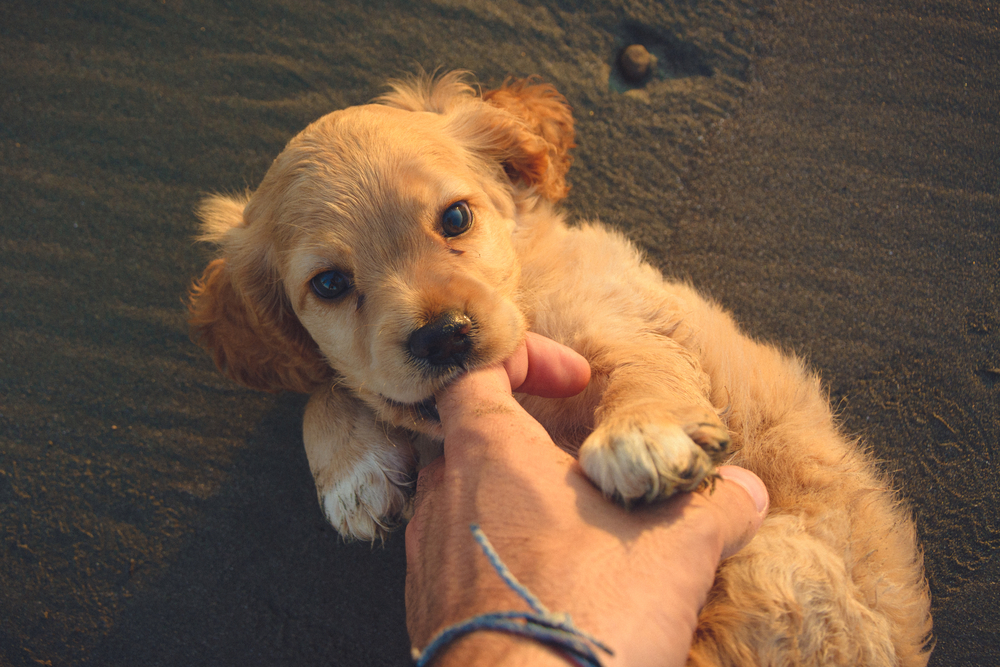
Puppies love to explore, play, and of course, bite. Don’t take your puppy’s habit too personally. The puppy biting phase is typical behavior that starts when your puppy turns 3 to 4 months of age (ouch!). They usually stop biting by the time they’re 8-10 months old. Your puppy likely doesn’t know how painful their bites are, which is why they keep doing it.
To stop your puppy from biting, try being vocal when they bite. A loud “ow” lets your puppy know that they’re not doing something good. You can also cut your playtime session short to show them that biting gets them nothing.
Another alternative is a chewable toy or stuffed animal that allows them to sink their teeth into something that doesn’t feel pain. Check out our 5 Must-Have Puppy Toys for your puppy’s biting pleasure!

Did you know puppies sleep between 18-20 hours a day? That’s a lot of sleeping for such a tiny furry cutie! You may be tempted to let your puppy sleep with you in your bed. Having your fur-baby snuggle up next to you for a snooze is nothing short of cute!
However, we highly recommend considering other options, such as a crate or kennel. Letting your puppy sleep in a crate is a great alternative because it gives them a designated spot to relax and sleep in during the day and night.
Puppies, like all dogs, are den animals and crates provide the warm, cozy shelter that they like. Make sure that the crate you choose has lots of space for your puppy to lie down, rollover, and stretch.
Crates and kennels are also useful when house training your furbaby. If your crate or kennel has enough space and looks den-like, your puppy will surely like it.
To make sleeping in a crate comfier for your furbaby, you can try placing a puppy bed inside. Check out our blog, The Best Types of Bedding For Your Puppy for some snuggly puppy bedding options!
We know puppies are a load of responsibilities but always remember to stay calm and positive with your new four-legged friend. It can take days, weeks, or even months until your puppy has your rules and expected behaviors figured out.
You will also spend lots of time getting to know your puppy, their personality, likes, and dislikes. We hope you and your beautiful puppy have a lifelong friendship!
Check out our blog, 5 Signs You’re Ready For A New Puppy to find out whether you’re ready for a new puppy!